During February’s Black History Month, we celebrated the work and shared information on some significant Black historical figures. The people we highlighted this year were specifically chosen due to their connection with our Catholic heritage, Wisconsin/Dane County, our food pantry, pharmacy, or the people we serve. Here are this year’s featured people…
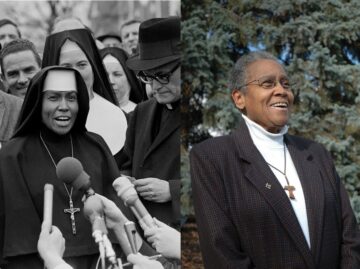
Sister Antona Ebo was a Franciscan Sister of Mary and hospital administrator. She was one of six Catholic nuns who marched to Selma, Alabama in 1965 to protest discriminatory voting practices and highlight racial injustice. She became the first African American woman to head a Catholic hospital when she was named executive director of St. Clare’s Hospital in Baraboo, Wisconsin. In Madison, she was chaplain at St. Mary’s Hospital Medical Center and was involved in social projects with Madison Urban League, the Madison Housing Authority, the NAACP and other local organizations.
Read more: https://www.franciscanmedia.org/st-anthony-messenger/antona-ebo-fsm-brave-sister-of-selma/, https://www.newspapers.com/article/the-capital-times-madisons-losing-siste/68066298/
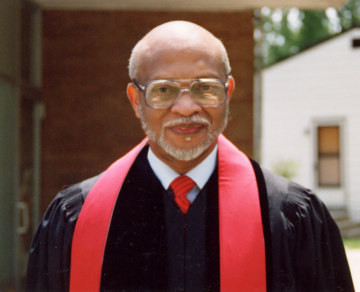
Rev. James C. Wright was a Madison civil rights activist, minister, businessman, and public servant. His legacy includes serving as the first Executive Director for the Equal Opportunities Commission where victims of discrimination could receive restitution for the wrong done to them. He was a beloved minister for more than three decades at Mt. Zion Baptist Church and founding member of the Urban League of Greater Madison. Thank you Rev. Wright for your courage, commitment, and care for people struggling for equity.
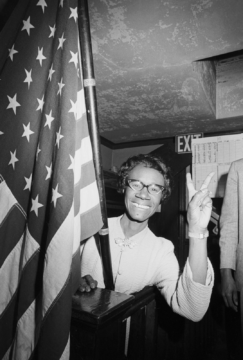
Shirley Chisholm was an American politician and the first Black woman elected to Congress in 1968. She was the first Black candidate for a major political party for president when she ran for president in 1972. During her time in Congress, Shirley was involved in the House Agriculture Committee where she worked to protect and expand food assistance programs. She was instrumental in the creation of the Federal WIC (Women, Infants and Children) Program that safeguards low income households with women, infants and children up to the age of 5, by providing supplemental food, nutrition education, and referrals to healthcare. More than 90,000 women and young children are currently receiving WIC support in Wisconsin alone. We thank Shirley Chisholm’s commitment to help fight food insecurity!
Read more: https://foodforothers.org/honoring-black-history-month-5-african-american-anti-hunger-activists/
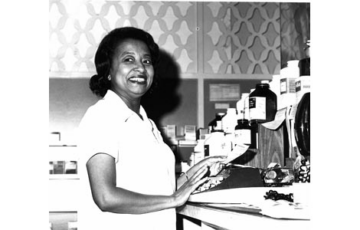
Mary Munson Runge was a pharmacist, advocate, mentor and leader. “In 1979, Runge was elected president of the American Pharmacists Association — the first woman and the first African American to be named to the role, ending a 126-year run of white, male presidents.” Runge was first a hospital pharmacist, then moved to community pharmacy where her personal passion to help people who could not pay for their medications flourished. Holding several federally-appointed roles, Runge advocated for the inclusion of women and minorities in pharmacy.
Read more: https://www.express-scripts.com/pharmacy/blog/celebrating-black-history-month-three-pharmacy-trailblazers-who-made-difference, https://www.aphafoundation.org/mary-munson-runge-scholarship, https://www.biomatrixsprx.com/news/mary-munson-runge-a-trailblazer-in-pharmacy
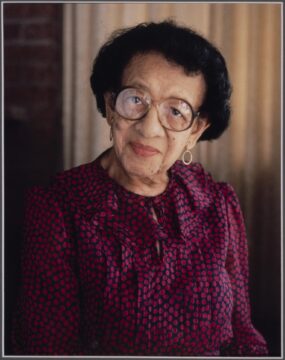
Although born to a family of sharecroppers in Georgia, Ardie Clark Halyard earned a university degree in 1920 – a year in which only 396 African Americans received bachelor’s degrees nationwide. Settling in Milwaukee with her husband Wilbur in 1923, they opened the Columbia Savings and Loan – the first African American-owned S&L. Columbia offered financial services that helped Black Milwaukeeans build security and stability through savings, business development and home ownership. Neither took a salary for the first 10 years of Columbia’s operation, and supported themselves through full-time jobs. Ardie’s efforts in social and economic justice extended to the Milwaukee chapter of the NAACP, where she served as the first woman president. Thank you for your sacrifice and lifetime of service so that all people may thrive.
Read more: https://womeninwisconsin.org/profile/ardie-clark-halyard/
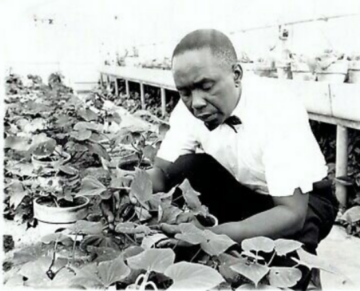
Booker T. Whatley was a professor of agriculture at Tuskegee University who specialized in sustainable agriculture. He pioneered the practice of regenerative agriculture and taught farmers how to diversify their crops. He created several new plant varieties including five sweet potato varieties and 15 grape varieties. Whatley advocated for ideas thought to be ahead of his time. In the 1960s and 1970s, he developed a client membership garden club where customers paid a fee to receive a portion of the harvest. This program laid the foundation for what became the modern community supported agriculture (CSA) program. Mr. Whatley has not been widely credited for the modern CSA system, however; it is often miscredited to farms in the mid 1980’s. Thank you Booker T. Whatley for helping to cultivate new ideas in agriculture and sustainability! These practices directly contribute to food pantries like ours that rely on gardens like the Madison Area Food Pantry Gardens and the Lacy Garden for fresh produce during the growing season to provide fresh and healthy food for our neighbors.
Read more: https://foodforothers.org/honoring-black-history-month-5-african-american-anti-hunger-activists/
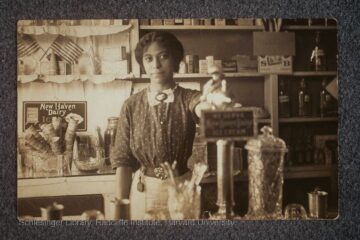
Anna Louise James was born in 1886, the daughter of a former slave. She graduated as the only woman in her class at the Brooklyn College of Pharmacy in 1908. Once obtaining her license, she became one of the first Black women to be a licensed pharmacist in the United States and was the first in the state of Connecticut. She began working at her brother-in-law’s drugstore and in 1917 it was renamed “James Pharmacy.” She operated the pharmacy until her retirement in 1967. During her career she was well known in her community for helping many people with their prescriptions when they were unable to pay the full amount. Thank you Anna Louise James for being a strong advocate for patient wellbeing and care!
Read more: https://www.pharmacytimes.com/view/celebrating-black-history-month-5-trailblazing-pharmacists, https://www.express-scripts.com/pharmacy/blog/celebrating-black-history-month-three-pharmacy-trailblazers-who-made-difference
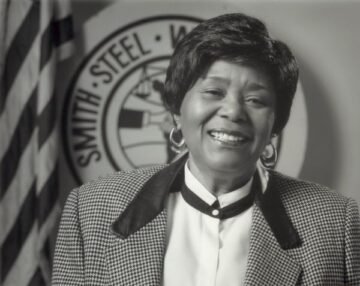
Nellie Wilson, a labor activist, was born in Texas and moved to Milwaukee with her father in 1928 when she was twelve years old. In the beginning of her working career, she faced discrimination through several low-paying jobs. During World War II, defense industry jobs opened to African Americans and Nellie secured a job at local manufacturing company, A.O. Smith. At A.O. Smith she became active in the workers’ labor union. She won election as a department steward, “founded the women’s committee of the Wisconsin chapter of the American Federation of Labor and Congress of Industrial Organizations (AFL-CIO),” and became the first woman elected to the union’s executive board. She fought against racial and gender discrimination at the company, filling many grievances on behalf of female workers. In retirement, Nellie continued to hold positions of leadership in AFL-CIO and advocated on behalf of women, minority and veteran workers. Thank you, Nellie, for your leadership and work in fighting for fair working opportunities!
Read more: https://www.milwaukeemag.com/women-make-milwaukee/, https://womeninwisconsin.org/profile/nellie-wilson/